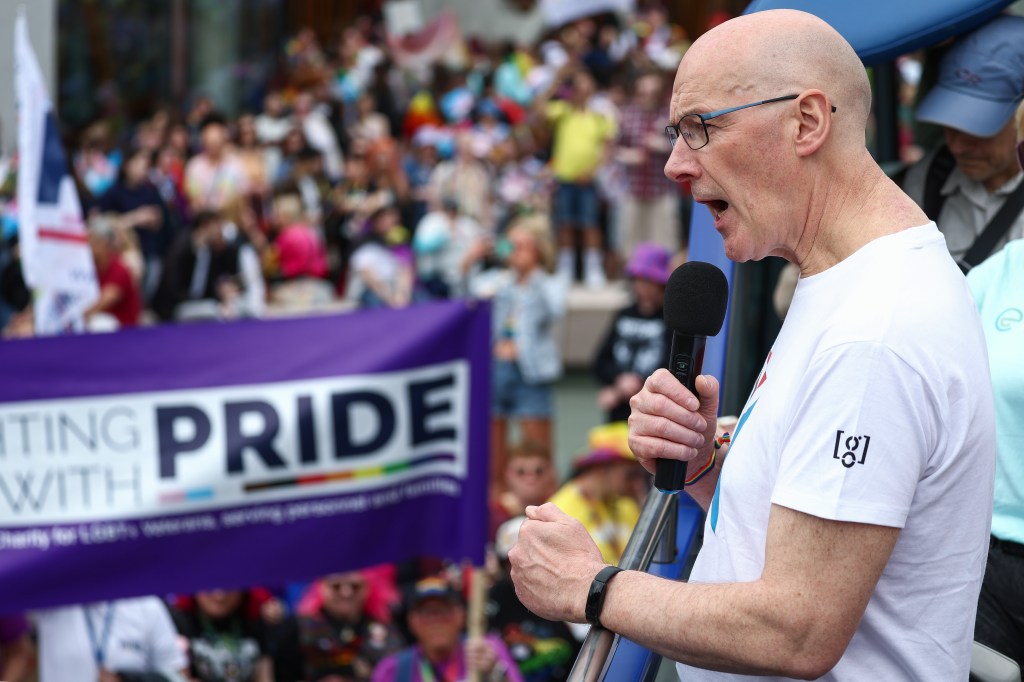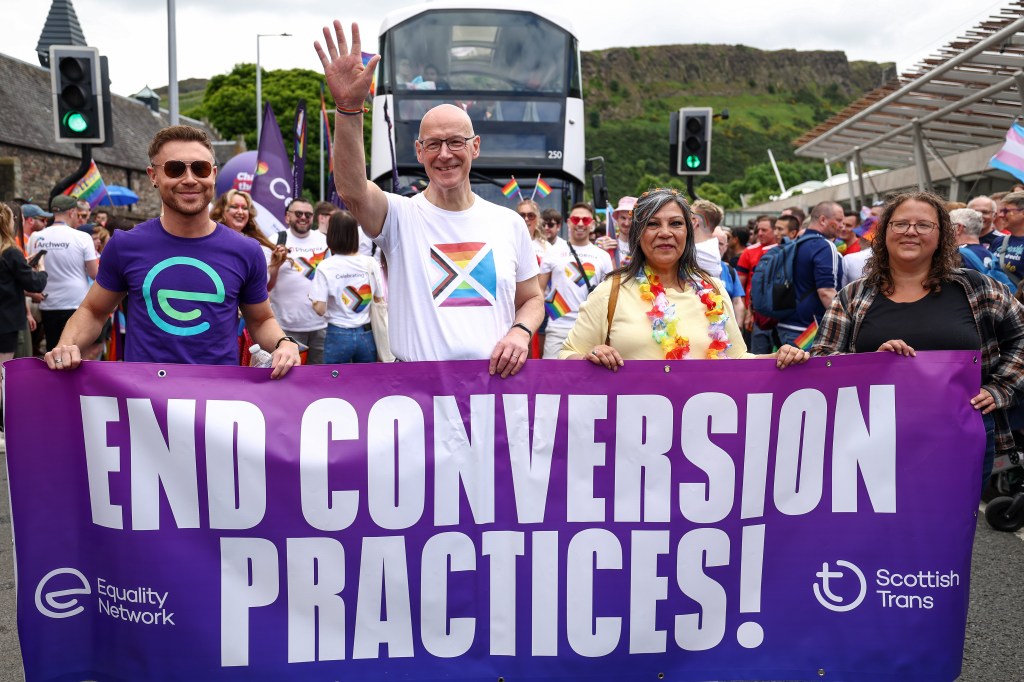SNP’s John Swinney wants ‘nothing to do’ with those who turn ‘minorities into enemies’
Leader of the Scottish National Party John Swinney wants “nothing to do” with other politicians who are turning “minorities into enemies”.
Speaking to PinkNews at Edinburgh Pride on Saturday (22 June), the SNP leader touched on a number of issues, including LGBTQ+-inclusive education, hate crimes and conversion therapy.
Swinney, who replaced Humza Yousaf as first minister last month, said he and his party want to “create an inclusive society that brings people together”.
PinkNews: Why should LGBTQ+ people vote for the SNP?
John Swinney: Because of the steps we’ve taken, such as the provision for equal marriage – which has been such an important step forward for Scotland – or the delivery of our commitment to ensure LGBTQIA+-inclusive education within our schools. These measures will be protected by the Scottish government. But they will also work to enhance the rights of the community and to ensure that we respond positively to the calls for those rights to be enhanced.

According to the TransLives Survey in 2021, 40 per cent of transgender people face discrimination when seeking housing, 63 per cent face discrimination when seeking employment. What will you do to get these numbers down?
I want to make sure we have an inclusive society, that we bring people together in our society and that we make sure that those who are marginalised are able to be brought into the heart of society and be well supported and well cared for. I certainly rail against the fact that some politicians are trying to turn minorities into enemies and I want nothing to do with that.
Would you ban conversion therapy?
We’ve got a commitment to ban conversion therapy, we’ve consulted on that proposition and we’re obviously working our way through the responses to determine what is the best way forward. We’ve got to go through that process to ensure that we properly consider all the issues raised.
How would you ensure that sex education remains LGBTQ+- inclusive?
It’s important that we have LGBTQIA+-inclusive education in our education system, that was a commitment and a provision I made as education secretary. It’s an important commitment that’s got to be fulfilled and anchored in our education system because young people need to be supported and educated in an age-appropriate fashion about all these questions and they [must be] well supported in that process.

Sexual-orientation hate crimes more than tripled between 2010 and 2021 in Scotland, what will you do to tackle anti-LGBTQ+ hate?
The first thing we’ve got to do is to recognise it, which is what the legislation the Scottish Parliament has passed is designed to do. But we’ve then got to educate and inform to reduce the incidence of these issues. We’ve also got to tackle these crimes when they take place to make sure that individuals are properly protected and supported as they should be in our society.
The UK was first for LGBTQ+ rights on ILGA-Europe’s annual Rainbow Map in 2015 and dropped to 16th in 2024. What will you do to return the country to the top spot?
I want to make sure that we take all the steps necessary to support individuals to feel included in society, that our institutions reflect all those values of inclusion. I see more and more evidence of that on a daily basis and I want to encourage that within our institutions. I can see it within private companies in our country as well, [with] many private companies taking part in the Pride march today.
Countries such as Belgium, Denmark and Iceland have self-ID for trans people. Would you want that in Scotland?
The Scottish parliament has legislated for that provision and it’s important the democratic wishes of the Scottish parliament are fully respected and that we’re able to implement the legislation we have passed.
John Swinney is not standing in the general election on 4 July.
How did this story make you feel?

